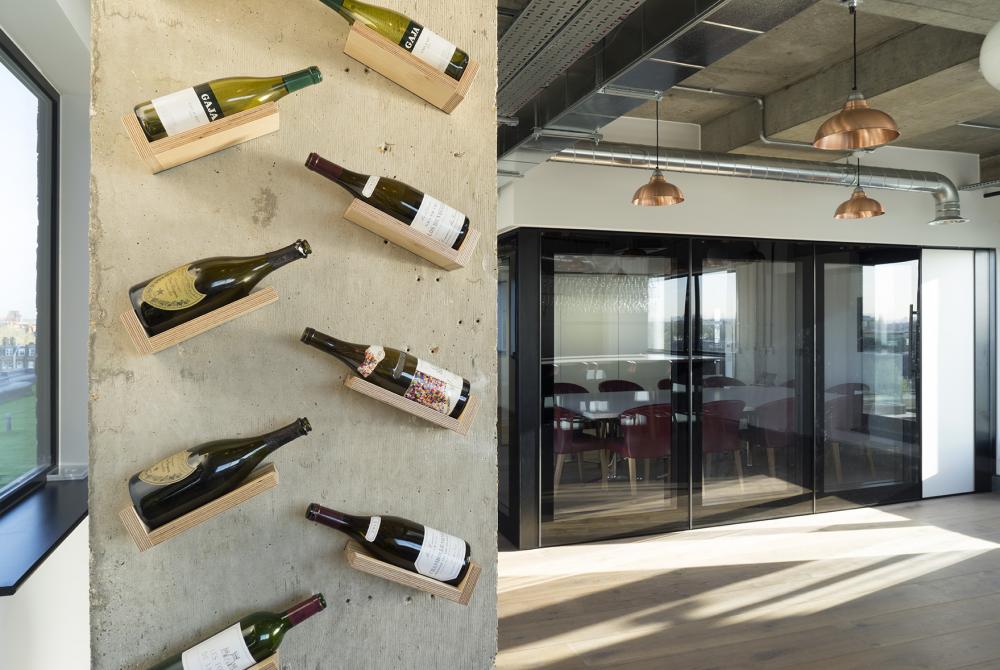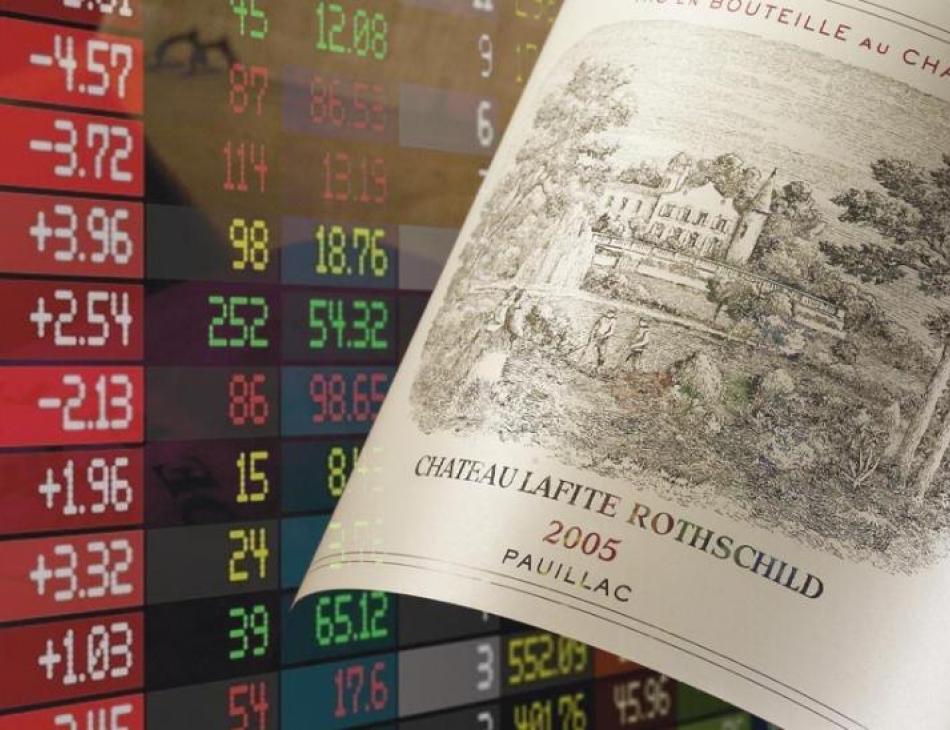Fine Wine Investing: Amid Market Turmoil Does This Alternative Asset Class Merit Consideration?
As the Coronavirus continues to spread rapidly at the time of writing mid this March, the full scale of the risk to the global economy has hit markets with rarely seen violence. The speed of the sell-off in equities and “risky” asset classes has only been matched by the rise in price of safe haven assets such as U.S. government bonds (Treasuries) or gold.
Now cash has suddenly become King and riskier asset classes shunned - at least for now. Who would have thought this just a few months ago? We certainly live in volatile and risky times.
The sea of red on dealing terminals around The City virtually on a daily basis of late shows how things have mounted an about turn since leading stockmarket indexes around the globe - from the Dow Jones Industrial Average and S&P500 to the FTSE 100 in the UK, the CAC40 in France and the DAX30 in Germany - were getting back to toppy levels.
Just take the FTSE 100 index of leading quoted companies as a case in point, year to date (to 19 March) it down almost 2,450 points (c.32%) from 7,604,30 back on 2 January. That is some implosion in a just a couple of short months. One might think this as a golden opportunity to buy shares right now. And, at the end of 2020 we might well be saying as much and why didn’t we buy more equities.
As always in a market crisis, the unknown factors lead to asset price dislocation as well as extreme volatility, which in turn lead to irrational behaviour and lack of long-term perspective. It’s happened before and will happen again.
But of course with equities across the world having plummeted more than 20% in a matter of two weeks at time of writing, representing the worst week for global markets since the 2008 financial crisis and one of the fastest sell-offs ever, it doesn’t exactly provide much comfort for investors if they’ve got caught napping.
Fine Wine Investment
“In this context, as a wine investment manager, the easy route for us would be to tell investors that wine, as an asset class, is a safe haven and that it has not experienced the turmoil we have witnessed in the last two weeks, therefore it's a much better asset class,” says Patrick Thornton-Smith, executive director at London-based Cult Wines, which since 2007 has provided market-leading fine wine investment services. Digesting a few charts focussing on this difficult recent period would seem to bear this out.
That said, Cult Wines that today has over £120 million (c.$140m) of fine wine assets under management and sold almost a million bottles of wine, stresses that they strongly believe in “a balanced, transparent approach backed by real figures and in focussing on the long term” - and not just an isolated few weeks to support our views or prove a point.
“The last 10 or so days have highlighted and reminded us that investment returns are intrinsically linked to risk and that, when volatility increases, it pays to have a diversified portfolio to cushion against violent market movements,” added Thornton-Smith, a former global head of Market Development (Exchange Traded Derivatives) at ICAP’s Traiana in The City.
The proof is in the pudding Indeed, according to Cult Wines’ experience and statistical analysis proves that wine, as an asset class, provides diversification, reduces risk and enhances long-term returns as part of a multi-asset portfolio.
This asset class exhibits both long-term appreciation potential and wealth preservation characteristics.
Performance During A Financial Crisis
So, how does wine stack up during a financial meltdown compared to other asset classes? As a proxy for the current situation, comparing the historical performance of major equity indices, gold and fine wine during the 2008-2010 period and its aftermath provides some insight. The stats reveal that:
• Fine wine, with less correlation to the traditional capital markets, outperformed the MSCI World index during the 2007-2009 financial crisis period. It tends to go down less in a downward market than other classes.
• Equity global indices were impacted the most during the year 2008, while Gold - considered as a safe haven asset - delivered a positive gain of 1.6%.
• Fine Wine price volatility is a far more subdued than for Gold or equities.
What about the Long Term & Alternative Asset Class Comparison?
Over the long term, the inclusion of fine wine reduces risk and provides diversification benefits to a portfolio. Furthermore, allocation to fine wine increase a portfolio’s long-term risk-adjusted returns.
Looking at a hypothetical £100,000 invested in four sample diversified portfolios between December 2009 and February 2020 (namely - (1) a 60%/40% equities/bonds mix; (2) 55%/15%/30% equities/bonds/gold; (3) 55%/15%/30% equities/bonds/fine wine; and, (4) 50%/20%/20%/10% equities, bonds, gold and fine wine - shows that that the two portfolios that included fine wine asset exposure performed better than those with no such exposure.
This result was according to data as of February 2020 and sourced from Bloomberg, the World Gold Council, MSCI and the Liv-ex, the latter the global marketplace for the wine trade that has over 440 members from start-ups to established merchants. Liv-ex supplies them with data, trading and logistics services.
Portfolio Reassessment
At a time when investors reassess their portfolio compositions, Cult Wines for one feels it is important to “re-iterate the credentials” of fine wine as an addition to your portfolio and why every diversified investor should allocate a portion of their money to the asset class.
Of course one might think they have a little bit of self-interest from pushing this message. But above that, this is because of the following:
• Investing in fine wine provides a steady appreciation over time;
• The asset class exhibits low volatility;
• A wealth preservation/defensive asset class and especially in current turbulent markets;
• A physical asset; and,
• Capital gains tax free (in the UK and in many other fiscal jurisdictions).
Still, at present in all this market turmoil and dead cat bounces on leading stockmarkets, one could rightly argue that holding cash in the current context is a better hedge against volatility and potential losses.
Whilst true it should be noted that cash does not appreciate in value and is only attractive when all assets are falling with a view to be deployed when the opportunity arises.
Held over the long term, cash also depreciates and does not produce any return, especially in a low interest rate environment, which will last longer after rate cuts by both the U.S. Federal Reserve and Bank of England.
“For all these reasons, we continue to believe Fine Wine offers a unique balance of risk and reward, which become more apparent in periods such as this one,” stated Thornton-Smith.
The ex-City man added from the firm’s headquarters at The Clockwork Building in Hammersmith that overlooks The Thames: “We cannot foresee how far reaching the current sell-off will be, and we’re certainly not saying there will be no downward pressure on global wine prices.”
He added: “However, we believe the demonstrated past resilience of this asset class and its ability to deliver uncorrelated returns over the long term, make it a very strong candidate for opportunistic buying should prices suffer from rippling effects.”
It should be borne in mind that investing in fine wine is not for everyone and to be realistic typically require as investment of around £10,000. Potential investors should also be aware of the upfront and annual fees to manage a portfolio of fine wine and that it is not a short-term investment.
For more information on Cult Wines and to download a free fine wine investing guide see: www.wineinvestment.com/wine-investment/download-the-guide/
About the author: Roger is a freelance writer based in London and has contributed to Forbes as well as The Guardian and The Independent. For several years he worked at the Financial Times as a staff writer for B2B titles. He has been awarded a State Street Institutional (UK) press prize for covering the regulatory landscape in financial markets. Previously he worked as an editor (RNS) at the London Stock Exchange.
Date published: 19 March 2020.













